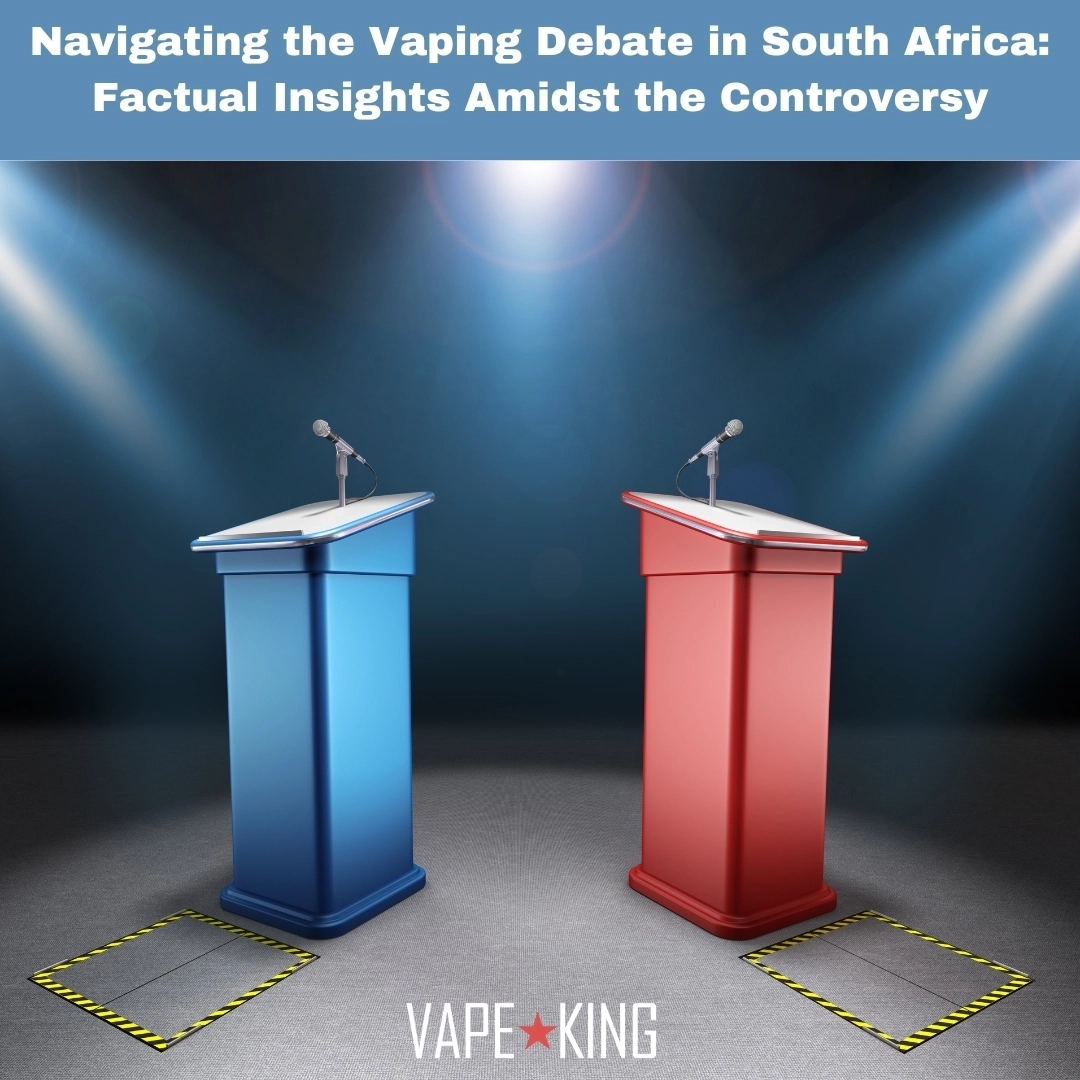Navigating the Vaping Debate in South Africa: Factual Insights Amidst the Controversy

As discussions surrounding vaping intensify globally and in South Africa, particularly concerning youth involvement, it's imperative to address misconceptions with evidence-based information. With Parliament's Portfolio Committee on Health deliberating the Tobacco Products and Electronic Delivery Systems Control (TPEDSC) Bill, separating fact from fiction becomes paramount, especially as the bill aims to restrict young people's access to vaping products.
Dispelling Exaggerations, Focusing on Solutions
While acknowledging concerns about youth vaping, it's essential to avoid sensationalizing the issue. Recent studies, including the 2021 Global Adult Tobacco Survey (GATS-SA), indicate that youth vaping rates remain relatively low compared to other substances. Although the prevalence among 15-24-year-olds is at 3.1%, suggesting an issue to address, claims of a widespread epidemic are exaggerated. Instead, emphasis should be placed on understanding vaping as a harm reduction tool for adult smokers seeking alternatives, supported by evidence showing vaping's reduced harm compared to smoking.
Striking a Balance with Regulations
Regulations aimed at curbing youth vaping must strike a balance between maximizing harm reduction benefits while minimizing youth access. Punitive measures targeting adult smokers in the guise of protecting young people may prove counterproductive. Rather than resorting to prohibitionist approaches, regulatory efforts should focus on education and awareness campaigns to prevent underage access, as exemplified by initiatives like our Youth Access Prevention initiative.
Emphasizing Education over Fearmongering
Fear-based tactics lacking substantial evidence only serve to stigmatize vaping without addressing the root causes. Collaborative education and awareness programs, akin to successful HIV/AIDS campaigns, offer a more effective approach to combatting underage vaping.
Evaluating the Proposed Bill
The TPEDSC Bill, as it stands, may miss the mark by resorting to prohibitive measures that could inadvertently fuel illicit markets. Drawing lessons from past experiences, such as COVID-19 lockdown regulations, underscores the limitations of prohibitionist policies. As Parliament deliberates the bill, a fair and balanced assessment is crucial to avoid overlooking proven harm reduction strategies. Incorporating insights from countries like the United Kingdom and Sweden, which have embraced harm reduction approaches, could offer valuable lessons for South Africa's regulatory framework.
In navigating the vaping debate, a nuanced understanding, evidence-based policymaking, and collaborative efforts are essential to address concerns effectively while maximizing harm reduction benefits.
No posts found
Write a review


